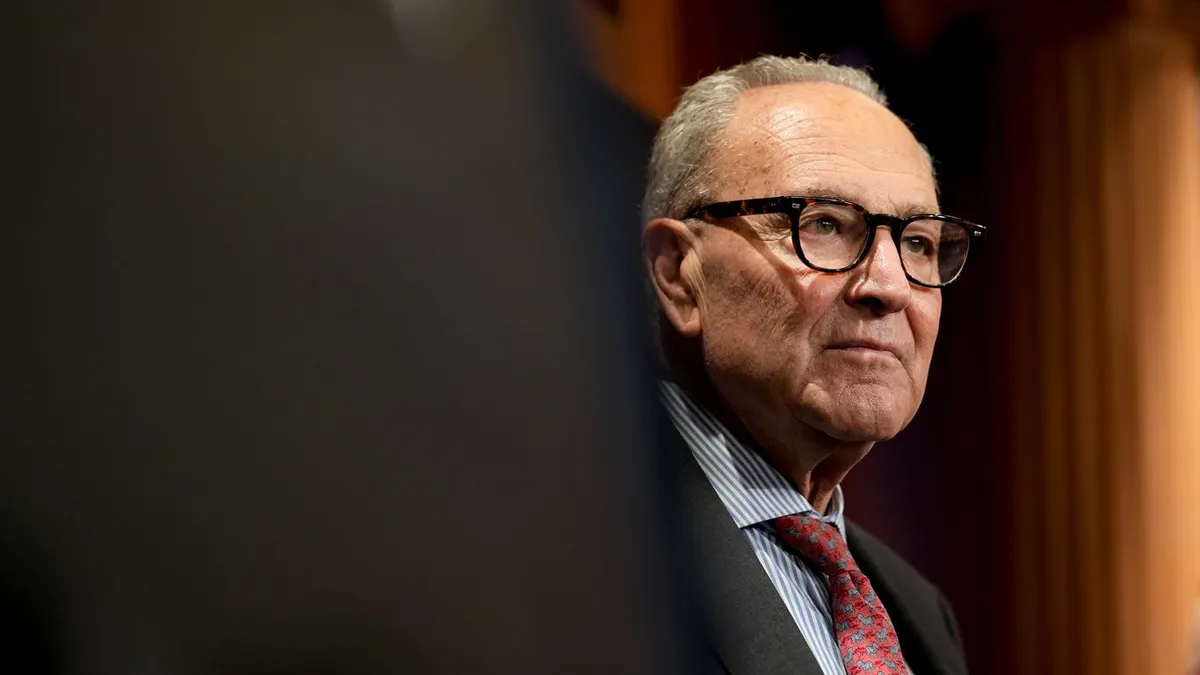
On Sunday, Democrats expressed strong concerns regarding President Trump's recent public demand directed at Attorney General Pam Bondi. They characterized this demand as a significant threat to the principles of American democracy. The situation escalated after Trump's Saturday post, which called for swift action against three of his political adversaries, further intensifying the ongoing pressure from the MAGA movement in the wake of the Epstein files fallout.
President Trump has positioned himself as the nation's chief law enforcement officer, having filled the Department of Justice (DOJ) and other federal agencies with loyalists. These individuals are now spearheading investigations into both Democrats and other critics of the Trump administration. This maneuver has raised concerns about the politicization of law enforcement in the U.S.
During an appearance on CNN's State of the Union, Senate Minority Leader Chuck Schumer (D-N.Y.) condemned Trump's actions, asserting that the president is transforming the DOJ into a tool for retribution against his enemies, regardless of their guilt. Schumer warned that this trend threatens to lead the nation toward a dictatorship.
Senator Chris Murphy (D-Conn.) also weighed in, describing the current political climate as one of the most perilous the country has encountered. Speaking on ABC's This Week, he stated, "We are quickly turning into a banana republic." Murphy highlighted Trump's use of federal power to target political adversaries, referencing the recent suspension of late-night host Jimmy Kimmel after comments he made regarding the death of Charlie Kirk.
Murphy emphasized that the implications of Trump's actions could lead to the prosecution of individuals for their political speech. He juxtaposed this with the leniency shown toward those involved in the January 6 Capitol riots, pointing out that the DOJ has closed investigations into key figures like Tom Homan, the former border czar.
Former Secretary of State and presidential candidate Hillary Clinton also commented on the situation via social media, likening Trump's tweets to Richard Nixon's infamous Watergate tapes, suggesting that the president's actions are unprecedented and alarming.
In response to the growing backlash, White House Press Secretary Karoline Leavitt issued a statement praising Attorney General Bondi for her efforts, asserting that Trump seeks justice for those who have allegedly weaponized the justice system against him and his supporters.
Trump's post, resembling a private communication to Bondi, specifically named former FBI director James Comey, Senator Adam Schiff (D-Calif.), and New York Attorney General Letitia James, all of whom have been subject to administration investigations. He insisted that "JUSTICE MUST BE SERVED, NOW!!!" expressing frustration over perceived inaction from the DOJ.
As Democrats grapple with the situation, they urged their Republican counterparts to stand against what they view as a violation of democratic principles. Schumer emphasized the need for bipartisan resistance, looking to legal and legislative avenues to counteract Trump's influence.
However, not all Republicans share the same concerns. Senator Rand Paul (R-Ky.) voiced his belief that all forms of lawfare are detrimental, including charges against Trump. In contrast, Senator Markwayne Mullin (R-Okla.) defended the president's transparency and openness regarding his demands for investigations.
The unfolding events surrounding Trump's demands and the responses from both sides highlight a deepening divide in American politics. As this situation evolves, the implications for democracy and the integrity of the justice system remain critical areas of concern for citizens and lawmakers alike.